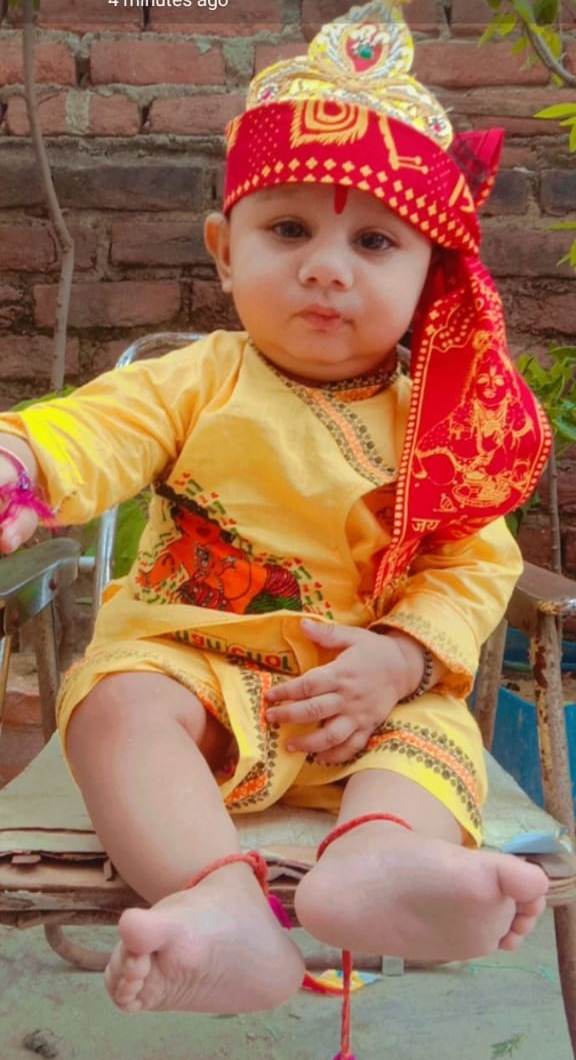
Brain-dead toddler saves two lives, becomes youngest organ donor in India
Keeping aside their sense of loss and grief, the family decided to donate the child’s organs after being counselled by the doctors of Delhi-AIIMS.
Setting a shining example, the family members of a 16-month-old baby boy, who suffered a fatal fall and was declared brain-dead at Delhi-AIIMS, donated his organs which saved two lives of two critically ill children in the city, making him the youngest organ donor in the country.
Keeping aside their sense of loss and grief, the family decided to donate the child’s organs after being counselled by the doctors of Delhi-AIIMS.
Taking such a courageous decision was not easy for the parents of the baby, who was the youngest amongst all six siblings and the only boy among six siblings.
16-month-old Rishant was seriously injured when he suffered a fall on August 17, 2022. His father, Upinder, a private contractor by profession, who was on his way to work, on being informed, rushed back and took the baby to private hospitals near his residence in Jamuna Park in East Delhi.
When the baby’s condition failed to improve, the father took him to Jai Prakash Narayan Apex Trauma Center, AIIMS, where the treating doctors declared him brain dead on August 24, 2022.
The grieving family received counselling and information about organ donation from physicians and transplant coordinators from the Organ Retrieval Banking Organisation (ORBO) at AIIMS.
After counselling sessions, when the family realised that Rishant's organs can give a fresh lease of life to other children they wholeheartedly agreed to donate his organs and tissues.
“Baby Rishant was the apple of our eyes and very much loved by all in the family,” his inconsolable father Upinder said.
Narrating the fateful day’s events, he added, “I was busy leaving for work on the morning of the fateful day and could not even hold my baby in my arms.”
“It breaks my heart today that we have lost him. But I felt that if his organs can save other lives, then I must donate them,” a sobbing Upinder said.
“We donate food, clothes, and money to the needy. Today our child is no longer with us only his memories and body remains. If his organs can help a needy person, then there is nothing better that can happen even in this misfortune,” the baby's uncle said.
However, retrieving the organs are not easy and poses a considerable challenge, especially in the case of babies, as brain death certification tests need to be performed at 12-hour interval instead of the normal six-hour interval the doctors informed.
“Identification and management of a potential donor are important in successful organ retrieval and transplantation. We have in place a system of mandatory notification to ORBO. Also, there is extensive work behind every organ donation and transplantation. From obtaining the consent of the deceased's family to retrieval of organs safely, allocation and transportation of organs, there are several teams at work,” Dr Aarti Vij, who is the Head of ORBO said.
“It is because of the effective and efficient coordination between many teams - Treating Physicians, Transplant Coordinators, Transplant teams, OT team, Forensic department, Support departments, NOTTO and Police department that this is made possible,” Dr Vij added.
Though cadaver organ donation is still very low in the country, data suggest that the trend has started to slowly pick up in recent times.
Rishant's case was the tenth case of organ donation at AIIMS-Delhi since April this year. Similarly, data from other states also suggest that people are coming in more numbers to donate the organs and tissues of their loved ones in case of brain death.
However, the gap between demand for organs and available cadaver donors is still huge, activists say. According to unofficial estimates, there is a need for an organ transplantation every three minutes in the country against which the waiting list for kidneys is over 250,000 followed by the liver at 80,000 and heart at 50,000.
“There is a need to build up a national movement to promote the concept of both body and organ donations across the country,” says Harsh Malhotra, the President of Dadhichi Deh Dan Samiti, which is one of the sixty civil society organisations working in this field.